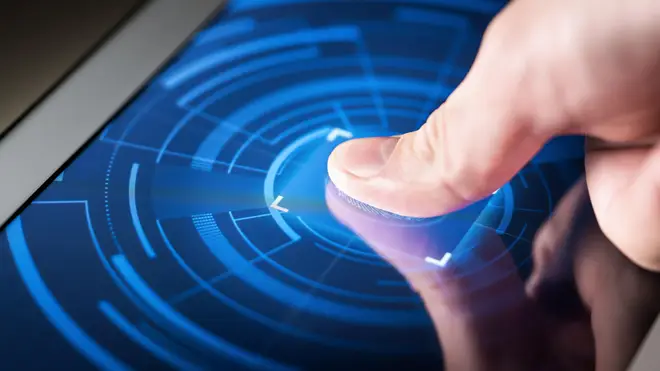
Nick Abbot 10pm - 1am
1 November 2023, 00:04

All the key questions ahead of the first global safety summit on artificial intelligence.
The “world first” AI Safety Summit begins on Wednesday as the UK looks to take a lead role in the discussions around the rapidly advancing technology.
Government officials, tech companies and researchers will be among those at the two-day event at Bletchley Park in Buckinghamshire.
Here is a closer look at what Prime Minister Rishi Sunak and the Government hope to achieve.
– What is the AI Safety Summit?
Organised by the UK Government, the aim of the summit is to bring together international governments, leading tech and AI companies, civil society and AI experts to discuss the risks of emerging AI technologies.
Artificial intelligence is set to revolutionise the way we live and thrive in the UK 🇬🇧However, it must be developed safely 🔒
I spoke at @AISummitFringe yesterday as part of their series of events holding crucial talks around AI in the run up to the #AISafetySummit . pic.twitter.com/5etK5AvBYH
— Michelle Donelan MP (@michelledonelan) October 31, 2023
The Government has said the focus of the summit will be so-called “frontier AI”, which includes large language models (LLMs), which are the backbone of AI chatbots such as ChatGPT and are expected to continue to evolve rapidly.
It wants to use the summit, being hosted at Bletchley Park in Buckinghamshire, once home to the Second World War codebreakers, to see co-ordinated action agreed on measures to further the safe use of AI around the world.
– What has Rishi Sunak said about AI?
In a major speech ahead of the summit, Prime Minister Rishi Sunak said he believes AI safety should be a global priority alongside the prevention of pandemics and nuclear war.
He said he wanted to be “honest” with people about the potential dangers if AI is misused, and that it was responsible to discuss those concerns but did not want to be “alarmist” or overly worry people right now.
The #AISafetySummit is a huge opportunity for Britain to convene a world leading group of academics and civil society, countries and companies to discuss Frontier AI risks.
Today I’m publishing the countries and organisations who are attending 👇 https://t.co/mBJiRwVDJN (1/2) pic.twitter.com/L3zcDiH4Nk
— Michelle Donelan MP (@michelledonelan) October 31, 2023
Hoping to position the UK as a global leader in AI safety, Mr Sunak has said that after the summit the UK will establish an AI Safety Institute to examine and test emerging forms of AI.
– Who is coming to the summit?
According to a published list, government representatives from China will be there, as well as figures from the US, France, Germany, Japan, India, the Republic of Korea, Saudi Arabia, Ukraine and others.
Tech giants Amazon, Google, Meta, Microsoft, Samsung and Sony are also confirmed, alongside AI firms Anthropic, Google DeepMind, OpenAI and Elon Musk’s xAI start-up.
In conversation with @elonmusk After the AI Safety SummitThursday night on @x pic.twitter.com/kFUyNdGD7i
— Rishi Sunak (@RishiSunak) October 30, 2023
The United Nations and European Commission will also be represented, as will a number of universities and other institutions.
The Government has previously denied that the summit was being snubbed by world leaders after the US said President Joe Biden would not attend, while French President Emmanuel Macron and German Chancellor Olaf Scholz are not expected to attend.
– What does the Government hope to achieve?
In documents published ahead of the summit, the Government has spoken of starting, and leading, a global conversation on how to manage the risks of advances in AI.
By hosting the summit the UK is hoping to place itself at the centre of global efforts to monitor the technology, while also making the UK a prime location to set up and grow an AI business.
Both Mr Sunak and Technology Secretary Michelle Donelan have suggested as much, and are expected to use the summit to cement that position.
However, some critics have said the summit’s scope is set too small and focused on too far into the future, rather than looking at issues already being caused by AI, including disruption to the job market.
– Will the summit change anything?
It is unlikely that a two-day summit will establish any major new global policies on AI, and the UK has said it is in no rush to regulate the sector, but rather wants to start a general, global conversation around AI safety.
Instead, some kind of signed joint statement, on the agreed global risks around AI, and some early next steps on responding to those risks, is more likely.
It is those small steps that the UK will hope are the beginning of a new safety regime that takes shape in the months and years to come.